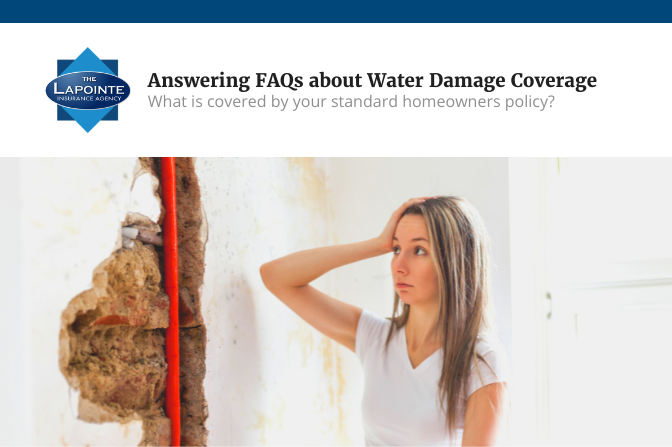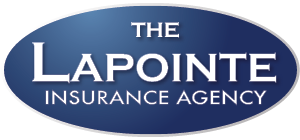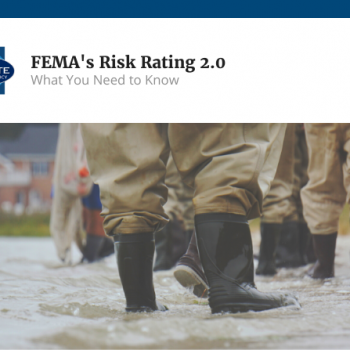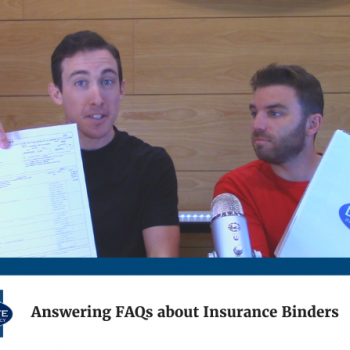Answering FAQs about Water Damage Coverage
- Posted by Daniel Simcock
- On May 6, 2021

In this article, we’ll take a deeper dive into water damage. We’ll discuss what is covered and what is not covered in a standard homeowners policy, as well as some ways to supplement coverage and prevent water damage in your home.
Key Takeaways
- A standard homeowners policy covers most sudden and accidental water damage, such as accidental discharge from plumbing and some instances of wind-driven rain.
- Standard policies do not cover water damage caused by flood, groundwater, or water backup.
- To supplement gaps in coverage, consider adding endorsements to your policy, such as flood insurance or water backup coverage, or purchasing a home warranty.
Water damage is one of the most common homeowners insurance claims, and also one of the most misunderstood. If you take a good look at your policy, you’ll probably see listed in your exclusions the terms “water damage” and “flood.”
But, is water damage always excluded? Truthfully, it’s a bit complicated.
In this article, we’ll take a deeper dive into water damage. We’ll discuss what is covered and what is not covered in a standard homeowners policy, as well as some ways to supplement coverage and prevent water damage in your home.
What water damage is covered by your home insurance?
“Water damage” may be listed as an exclusion, but a standard homeowners insurance actually does cover some forms of water damage. It all depends on where the water originates.
Your standard policy covers most sudden and accidental water damage from the following sources.
-
- Accidental discharge from plumbing
- Broken HVAC
- Broken or damaged appliances, such as washing machine or dishwasher.
- Wind-driven rain that enters your home through an opening (like a hole in the roof) that was caused by an insured peril.
How is water damage covered by a standard policy?
Depending on the water damage, two types of coverage within a homeowners insurance policy may apply for a covered claim.
Dwelling Coverage helps pay for damage to the structure of your home. For example, if a pipe suddenly bursts and damages a wall, dwelling coverage may help pay to repair or replace that wall.
Personal Property Coverage helps pay for damage to your belongings. If a burst pipe results in a drenched computer or bookcase, personal property coverage may help pay to repair or replace those damaged items.
It’s important to note that your insurance will pay for covered damages only if they exceed your deductible. As well, your insurance policy usually sets a limit on the amount they will pay toward certain claims. To learn more about your deductibles and coverage limits, consult your policy or your insurance agent.
What water damage is not covered by my policy?
As you may expect, your homeowners policy does exclude certain types of water damage. The three most common exclusions are:
- Flooding
- Ground water
- Water that backs up through sewers or drains or overflows through a sump pump
As well, most insurance will not cover the source of water damage, such as:
- Repairing or replacing broken pipes
- Repairing or replacing appliances
- Repairing a roof
Will homeowners insurance cover wear and tear?
It’s important to note that wear and tear is not covered under your homeowners insurance. Your insurance is there to protect you from accidents and sudden damages, and is no substitute for regular maintenance.
For maintenance-related problems, you may consider purchasing a home warranty. A home warranty can help you repair and replace appliances and systems that malfunction due to wear and tear. Home warranties are a good way to fill in the gap in coverage that insurance just won’t cover.
How can I supplement gaps in coverage?
Speaking of covering gaps in coverage, there are several additional coverages you may consider if you are worried about water damage.
Flood Insurance
As its name implies, this coverage will protect you from flooding. However, in order to be covered, a claim must meet FEMA’s definition of flooding.
As defined by FEMA, a flood is: “A general and temporary condition of partial or complete inundation of 2 or more acres of normally dry land area or of 2 or more properties (at least 1 of which is the policyholder’s property).”
A common misconception about flood insurance is that you can only get it if you’re in a high risk FEMA flood zone. But the good news is that all homeowners can benefit from flood insurance. For those in low-risk flood zones who just who want the protection, flood insurance can usually be added at little cost.
Water Backup Coverage
This coverage protects your home and personal property from water damage that results from sewage or sump pump back- up. These backups can occur for several reasons, such as aging sewers, combined pipelines, tree roots, sanitary main blockages, and sump pump breakdown.
Equipment Breakdown Coverage
This coverage helps protects most equipment and built-in systems in your home from sudden and accidental mechanical and electrical breakdown. As related to water damage, this coverage may help you cover repairs for sump pumps, HVAC systems, and appliances in the event of a systems breakdown.
How might I prevent a water damage claim?
When it comes to water damage, prevention is an important step to protect your home. In the event of an claim, your insurance provider will look to make sure that you did your part to prevent outstanding damage.
Here are just a few tips on how you can do your part to prevent water damage.
- Monitor water bill for unexpected hikes in usage. An unexpected increase may signal a water leak.
- Properly dispose of grease and paper products to avoid clogging drains.
- Consider installing a backwater prevention valve, so that sewage water goes out but doesn’t come back in.
- Install water detection devices, which can help identify a slow leak that may go unnoticed.
- Maintain appliances & home systems, as well as trees & vegetations.
- Promptly investigate and fix leaks in your home.
We hope we’ve helped you better understand water damage and your homeowners policy. And now we’d like to turn it over to you. Did you learn something new from this article? Or do have a question about your homeowners policy? Leave a comment below or contact us at info@lapointeins.com.


